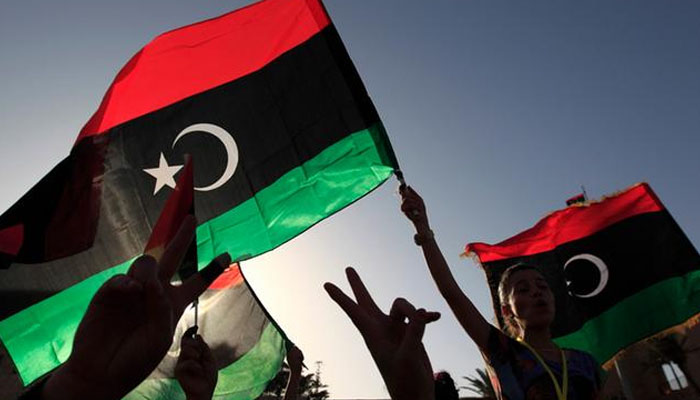Procrastination in Holding Libya’s Elections.. Why, and Who Benefits?
Libya Has Been Without Elections for Years... When will the Crisis End?

In December 2021, the Libyan House of Representatives announced the postponement of the elections scheduled for 24 December of the same month, until the end of January 2022, at the request of the High Electoral Commission.
In January 2022, the IHEC announced once again the indefinite postponement of the elections due to security, judicial, and political obstacles that prevented the holding of the elections on time.
Another January has come, and the elections have not yet taken place, and no date has even been set.
A complex landscape of Libyan politics, hoping for a breakthrough to the years-long crisis and the moment to hold presidential and parliamentary elections, according to a political agreement reached last year. But what has this hope attributed to him? Is there any real hope of solving this crisis? What are the reasons for the continuous postponement of elections? Who has the interest in procrastinating in holding elections ?
Failed initiatives and dialogs
There have been several initiatives and many dialogs among Libyan parties in Morocco, Turkey, and Egypt, but no date has been set for these elections, which Libyans are anticipating because there is no full constitutional basis to hold them despite the parties agreeing on part of that rule.
Dr. Mohammed Zubeidi, a Libyan political analyst, said the conditions in Libya are very difficult because there are no quick and radical solutions to the crisis at this time. He pointed out that a constitutional basis must be found for holding elections on the basis of which all actors on the Libyan scene, both regional and international powers, have been stressing this call.
Zubeidi added that the political parties have not succeeded in getting out of the crisis despite several regional and international initiatives and mediation. “Things got even worse after the Libyan Army attacked the capital, Tripoli, in 2019, and the Government of National Accord – then – relied on Turkey, which intervened militarily through mercenaries and its army to prevent the Libyan Army from liberating Tripoli from the control of militias.”
Cause of Disagreements
The Libyan political analyst pointed out that the faltering political solution in Libya, due to disagreements between the main political forces on the election law and the conditions for running for the presidency, and divisions between the state institutions, is the result of a struggle between two governments for power.
Abdul Hamid Dbeibeh, the speaker of parliament, Aguila Saleh, and Khalid al-Mishri, the head of the Supreme Council of State, accused the agreement, which he described as “suspicious”, of disrupting the elections. The split between Saleh and Khalid al-Mishri reflected Libya’s crisis of mistrust.
To begin the electoral process, the constitutional basis for elections must be in place, and achieving it requires the consensus of Aguila Saleh and Khaled al-Mishri, as stipulated in the 2015 Libyan Political Agreement (Skhirat Agreement), which granted legitimacy to the extension of the work of the House of Representatives and created the High Council of State as an alternative to the disbanded National Congress. Things got even worse after the Libyan Army attacked the capital, Tripoli, in 2019, and the Government of National Accord – then – relied on Turkey, which intervened militarily through mercenaries and its army to prevent the Libyan Army from liberating Tripoli from the control of militias.
Among the most prominent of these was Fathi Bashagha’s agreement with the Council of Representatives. He was charged with forming a national government to succeed Dbeibeh’s government, which expired a year ago.
Bashagha bribe
Media sources have reported that Bashagha bribed Khalid al-Mashri to procrastinate in holding the elections and postpone them indefinitely, in order to remain in the current elected government.
Members of Libya’s High Council of State voted on Sunday to suspend communication with parliament until the parliament reverses a decision to establish a Benghazi-based constitutional court. The measure was passed by 68 out of 79 votes, signaling a sudden halt in dialog between the two chambers since last week, casting doubt on the prospect of a new failure facing Libya’s electoral process.
Thus, the dialog initiated by al-Mishri in Morocco with Aguila Saleh, the speaker of parliament, on the birth of a new government to lead the country to elections, on constitutional grounds and on sovereign posts, is now suspended indefinitely, on the assumption that either one of the parties will give up or that agreement seems somewhat unlikely.
Complex scene
Mahmoud Mohammed, a Libyan political analyst, said complicating the political scene further is the uninterest of the two men who are charged with ending successive transitions, a vision shared by a wide cross-section of Libyans across the country. Elections are not an end in themselves; It is a means to achieve the goal of restoring the State, its institutions and its sovereignty.
Mohammed added that even if the presidents of both houses agree on this, it would not be enough to move on to the election step, especially after relations between Al-Mishri and Abdul Hamid Dbeibeh became tense. He stressed that going out on a constitutional basis would to some extent make regional and international powers rally around it, especially since this support would reduce the Turkish influence and impediments to Dbeibeh remaining in power.
How long will Libya remain in crisis? And when does it get out of its dark tunnel?












